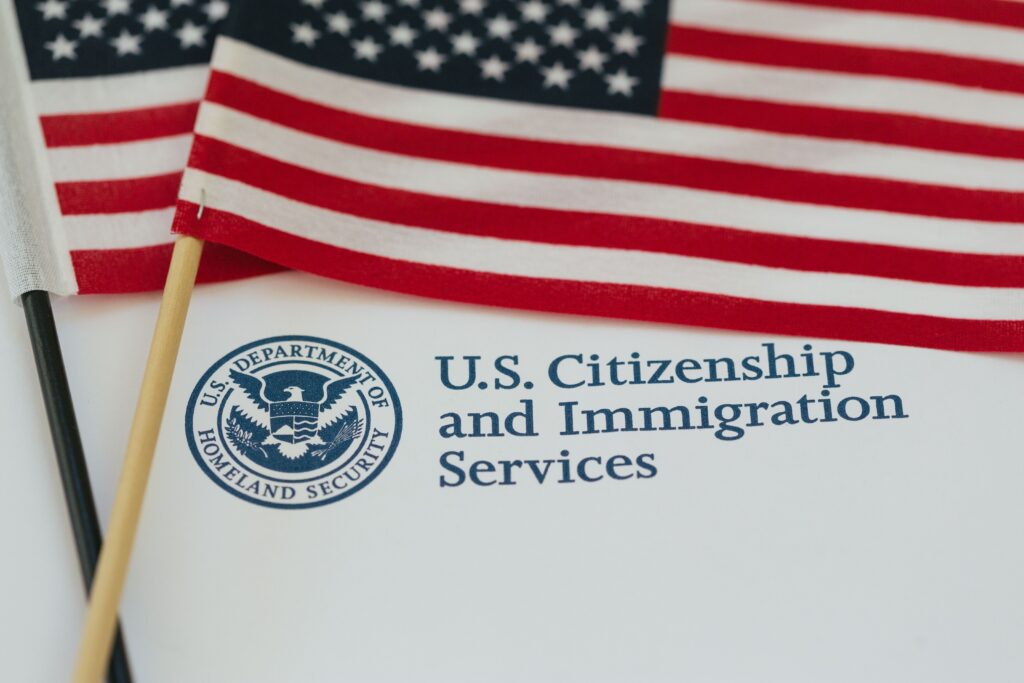

Our experienced team of O-1 Visa lawyers is committed to helping individuals with extraordinary abilities realize their goals. We understand the intricate details of immigration law and apply this knowledge to champion your unique skill set on a global stage. Together, we can navigate the path to achieving your career objectives, securing your place in an international industry that values your exceptional contributions.

The O-1 Visa, a non-immigrant visa category, is crafted specifically for those who have demonstrated extraordinary abilities in diverse fields such as sciences, arts, education, business, athletics, or the motion picture industry. It also caters to individuals who have showcased incredible achievements in the television industry. The primary objective of this visa is to allow international talent with unrivaled skills or accomplishments in their respective disciplines to work in the United States. The underlying intention of the O-1 Visa is to bolster the nation’s competitiveness by attracting and retaining world-class talent.
Yes. The O-1 Visa is categorized into two distinct types: the O-1A Visa (for individuals with extraordinary ability in the sciences, education, business, or athletics) and the O-1B Visa (for those with extraordinary abilities in the arts or extraordinary achievement in motion picture or television production).
The O-1A visa is a specific subtype targeting individuals who have demonstrated extraordinary ability in the fields of sciences, education, business, or athletics. This category necessitates that the individual has garnered sustained national or international acclaim or has achieved a high level of recognition for their groundbreaking contributions and advancements in their field. The evidence for this category should ideally include professional awards, published work, participation on panels, or recognition from peers and professional organizations.
The O-1B visa, on the other hand, caters to individuals possessing extraordinary ability in the arts or extraordinary achievement in the motion picture, television, or entertainment industry. ‘Extraordinary’ in this context refers to a high level of achievement in the artistic domain, as demonstrated by a degree of skill and recognition significantly above that ordinarily encountered. Applicants for this visa type must supply evidence such as critical reviews, significant box office earnings, recognition from industry organizations, or testimonials from recognized experts in the field.

‘Extraordinary Ability’ in the context of an O-1 Visa, as defined by the United States Citizenship and Immigration Services (USCIS), refers to a level of expertise indicating that the individual is one of a small percentage who has risen to the very top of their field of endeavor. The term ‘extraordinary’ implies a high degree of achievement or ability that is significantly above what is ordinarily encountered.
To qualify for an O-1 Visa, an individual must demonstrate extraordinary ability by having sustained national or international acclaim or must have achieved significant recognition for their work in their specific field. The O-1A visa and O-1B visa both have distinct eligibility criteria that must be met.
Applicants for an O-1A visa must show receipt of a nationally or internationally recognized award or prize for excellence in the field of endeavor. If this cannot be demonstrated, an applicant must provide evidence of at least three of the following:
National or international recognition is a key factor in the O1-B visa.
Applicants aiming to secure an O-1B visa are required to provide evidence that the applicant has been nominated for, or has been the recipient of, significant national or international awards or prizes in the particular field, such as an Academy Award, an Emmy, a Grammy, or a Director’s Guild Award.
or to provide proof fulfilling at least three of the ensuing criteria:
Recognition from critics, experts, or government agencies for achievements in the field
Evidence of membership in associations in the field for which classification is sought, which require outstanding achievements of their members, as judged by recognized national or international experts in their disciplines or fields.
Evidence of participation on a panel, or individually, as a judge of the work of others in the same or in an allied field of specialization.
Evidence in the form of published material in professional or major trade publications or other major media about the applicant relating to their work in the field.
Evidence of original contributions of significance to the field.
Evidence of performance in a lead, starring, or critical role for organizations that have a distinguished reputation.
Evidence of major commercial successes in the performing arts, as shown by box office receipts or record, cassette, compact disk, or video sales.

The application process for the O-1 Visa involves a few steps that need careful attention to detail, and these steps require the collaboration of the individual applying and their employer.
The initial step in obtaining an O-1 Visa is for the employer (or agent) to file a petition, Form I-129, Petition for Nonimmigrant Worker, with the United States Citizenship and Immigration Services (USCIS). The petition must include evidence of the individual’s extraordinary ability or achievement.
This evidence is evaluated on a case-by-case basis, but generally, it can be awards, letters of recognition, or documented instances of the individual’s contributions to their field.
The employer must also include a written advisory opinion from a peer group, labor union, or a person with expertise in the individual’s area of ability, if applicable.
Once the I-129 form has been properly filled out and submitted, USCIS will review the petition. Processing times may vary, but if the petition is approved, USCIS will send a Notice of Action, Form I-797. This approval does not grant the visa; rather, it makes the individual eligible to apply for an O-1 Visa at a U.S. Embassy or Consulate abroad. If the individual is in the U.S. in another immigration status, the USCIS approval of the case will change their status to O-1.
Visa Interview if Abroad
The individual must then schedule a visa interview, during which they will need to provide documentation proving their eligibility for the O-1 Visa category. After the successful completion of the interview, the individual may be issued an O-1 Visa.
Note: Due to the O-1 visa processing time, it is crucial that all paperwork is filed at least 60 days prior to the desired date of entry into the United States. This ensures that there is ample time for the United States Citizenship and Immigration Services (USCIS) to review and process the application.

The O-1 Visa offers several notable advantages:
Duration and Extension: Initially valid for up to three years, the O-1 Visa can be extended in one-year increments without a cap on the number of extensions, enabling the holder to stay in the U.S. indefinitely as long as they meet the requirements.
No Annual Limit: Unlike many other visas, there is no cap on the number of O-1 Visas issued each year, improving the odds of approval.
Flexibility in Employment: Holders of the O-1 visa have the freedom to work part-time or full-time for one or several employers or even be self-employed (under some situations), as long as they are working in their field of extraordinary ability.
Dual Intent: The O-1 Visa essentially acknowledges the “dual intent” of visa holders, allowing them to apply for a Green Card while on an O-1 status in certain situations. There is no need to show a foreign residence requirement, and filing the first steps of a permanent residence application is not a reason to deny an O-1 visa application. .
Family Benefits: Immediate family members of O-1 Visa holders (spouse and unmarried children under 21) can accompany the holder to the U.S. under O-3 status, though they are not authorized to work.
Access to Global Talent: For employers, the O-1 Visa provides an opportunity to hire global talent demonstrating extraordinary skills in various fields.
Immediate Processing: An O-1 Visa application can be expedited using premium processing, which guarantees a response from USCIS within 15 days.
The O-1 Visa is initially valid for up to three years. However, it can be extended in one-year increments, with no cap on the number of extensions. This means that the visa holder can potentially stay in the U.S. indefinitely as long as they continue to meet the requirements of the visa.
The processing time for an O-1 Visa can vary, but typically, it takes between 2 to 3 months. However, if the petitioning employer opts for premium processing, a response from the United States Citizenship and Immigration Services (USCIS) is guaranteed within 15 days. It’s important to note that the petitioner should file all necessary paperwork at least 60 days prior to the desired date of entry into the United States to allow ample time for processing.
If your O-1 Visa application is denied, you have the option to appeal the decision with the USCIS. The denial letter will outline the specific reasons for the denial, and you will have 30 days from the date of the denial to file an appeal. It’s also recommended to consult with an immigration attorney to understand the best course of action based on the specific reasons for the denial.

If you’re considering the O-1 Visa as your pathway to working in the United States, you should only consult with experienced O-1 Visa immigration lawyers. At Bashyam Global LLP, our attorneys are well-versed in the complexities of the O-1 Visa application process and can provide the expert advice you need. Don’t navigate this journey alone; reach out to us online or call us at 919-833-0840 today to ensure your talents are recognized and rewarded in the US.